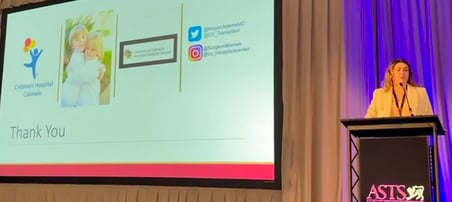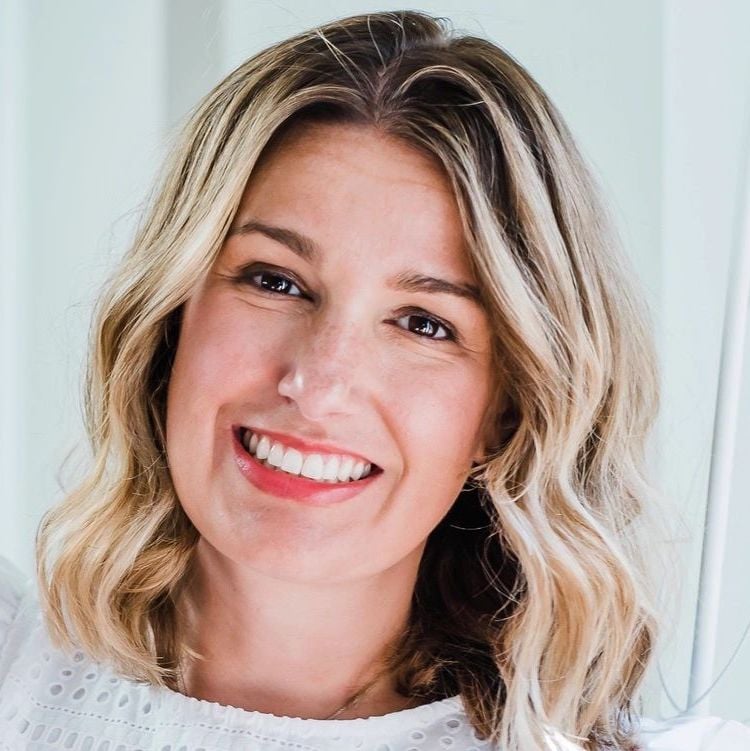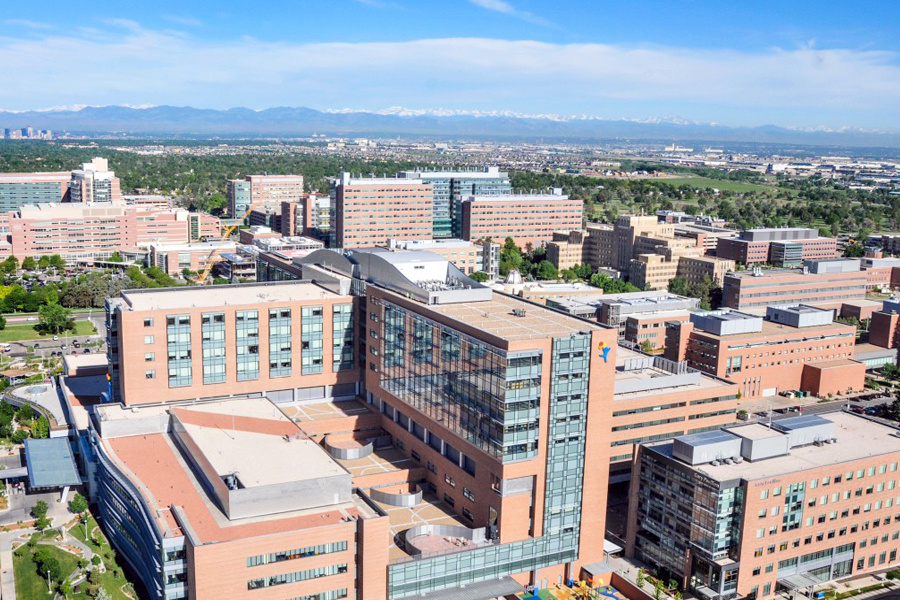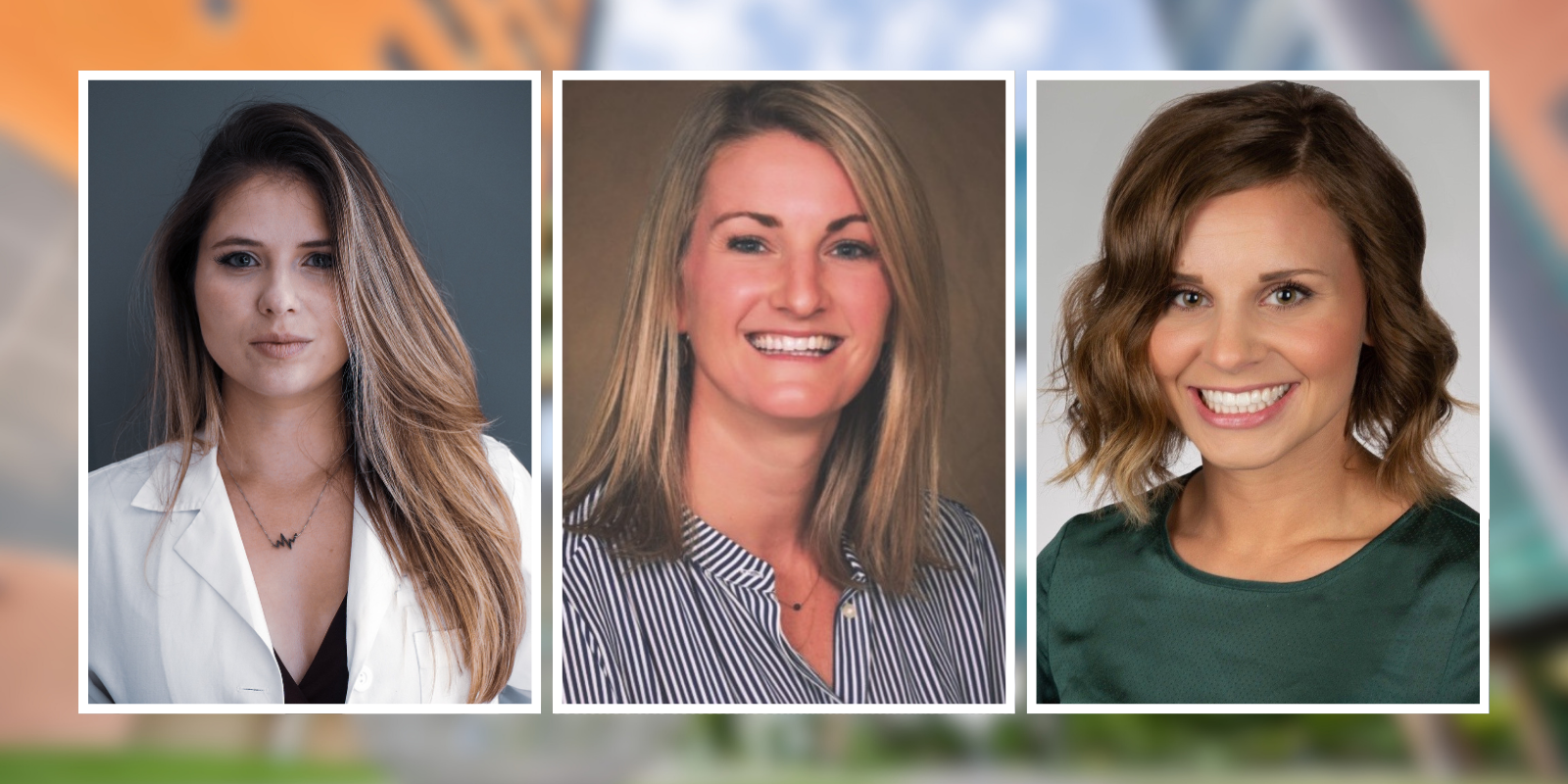Megan Adams, MD, surgical director of pediatric living donor transplantation at the University of Colorado Department of Surgery, has received the 2023 Pipeline Award from the American Society of Transplant Surgeons (ASTS).
Adams, associate director of the fellowship program in the Department of Surgery, received the award for her role mentoring medical students, residents, and fellows.
“Teaching is one of my favorite things to do, and I get a lot of face time with trainees from all different levels,” Adams says. “It’s a great feeling when somebody is struggling with something, whether it’s an operative skill or something else, and I am able to help them and see them finally succeed.”
Growing field
Adams, who studied medicine at Wayne State University in Michigan and completed her residency and fellowship at the CU Department of Surgery, remembers a time not that long ago when fewer residents wanted to go into transplant surgery, due to the unpredictable schedule and lack of restrictions on hours worked.
That has changed now, she says, making transplant surgery a more attractive option for those interested in making an immediate difference in someone’s life.
“Every time I do a successful kidney transplant with a medical student or a young resident, I tell them that in two hours, they fixed a chronic disease that this person has been living with their entire life,” she says. “That has to be the coolest part of my job.”
Nondirected donations
A neophyte in the world of transplant when she arrived at CU for her residency, Adams quickly fell in love with the specialty.
“I thought, ‘This is so cool — you can take organs from someone who has passed away and save another person’s life? That's the coolest thing ever,’” she recalls. “I tried to talk myself out of transplant for a long time, because I knew the lifestyle was going to be crazy and it was going to make it hard to have a family, but my partner at the time — now my husband — said, ‘You’re always happy on transplant; just do it. And we'll figure it out.’”
Now a specialist in pediatric transplants, transplanting livers and kidneys into children as young as newborns, Adams is a hero on social media for other young female transplant surgeons, and a fierce advocate for nondirected donations — those in which altruistic donors give up a small piece of their liver to save the life of a stranger they have never met.
“We have these donors who walk in and say, ‘I heard you could take a small piece of my liver and save a baby. I want to be a living donor,’” she says. “We have been able to transplant our entire waitlist from nondirected living donors.”
Currently, only half of the pediatric medical centers in the U.S. offer living donation. Adams is working to get the word out to parents and families who are waiting on organ donations that there is a potentially faster way to receive the life-saving operation.
“All of these families want what's best for their child,” she says. “There's no one who wouldn’t get on a plane to save their kid.”
 Megan Adams, MD, accepts her ASTS Pipeline Award in January.
Megan Adams, MD, accepts her ASTS Pipeline Award in January.
Empowering young surgeons
Adams received her ASTS award at the organization’s conference in January. “It was pretty amazing to be sitting on the stage with these other giants in the world of transplant,” she says — and to be recognized for her mentorship, which is one of the most rewarding aspects of her job.
“When you let somebody do something new, or an operation they’ve never had the chance to do before, and they do it successfully, they get so excited, and they want to come back for more,” Adams says. “That’s the most rewarding part of my job. If you make people feel like they can do anything, eventually they will be able to do anything.”

.png)



